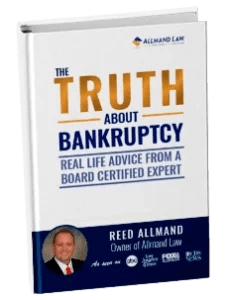
Easy Steps to File for Personal Bankruptcy in Dallas

If you are thinking of filing for personal bankruptcy in Dallas and are worried of a complicated and difficult legal move, think again. While the decision to file should come after much deep contemplation, the truth is that an experienced bankruptcy lawyer can help you navigate the choppy waters of Chapter 7 or Chapter 13 bankruptcy .
With your Dallas bankruptcy attorney by your side, here are the easy steps you can use to file for personal bankruptcy in Dallas:
Decide On Your Specific Type of Personal Bankruptcy
Before you can get the ball rolling with your bankruptcy attorney, the two of you will need to decide whether you should file for a Chapter 7 or Chapter 13 bankruptcy. Ultimately, the decision to file for either type of bankruptcy will come down to how many of your assets you would like to keep. With a Chapter 7 bankruptcy, you could be expected to liquidate your non-exempt assets in order to pay for your debts. On the other hand, a Chapter 13 bankruptcy presents you with a modified debt repayment plan, which allows you to keep more of your assets while still satisfying your creditors.
Please note that you’ll need to consult with your Dallas bankruptcy lawyer to determine which exemptions apply with your particular bankruptcy case.
Enroll for Credit Counseling
Federal and state laws require that you enroll in credit counseling courses before your personal bankruptcy can be approved. Don’t take these lessons lightly – they will provide you with the real-world information you need to make the most of your clean financial slate. Be sure to consult with your Dallas bankruptcy attorney before enrolling in a specific course, as it will need to be approved by the bankruptcy courts beforehand.
Refer All Creditors and Collectors to Your Dallas Bankruptcy Lawyer
Once you have decided on which type of personal bankruptcy you would like to file for, you will need to refer all creditors and collectors to your Dallas bankruptcy lawyer . Remember, once you have acknowledged to a creditor that you’ve filed for bankruptcy, it is illegal for them to contact you again. If they still insist on harassing you, your Dallas bankruptcy lawyer can draft a letter warning the creditors to cease-and-desist. If they do not, you have the right to take them to court.
These easy steps will help you and your Dallas bankruptcy attorney successfully file for a Chapter 7 or Chapter 13 bankruptcy.






